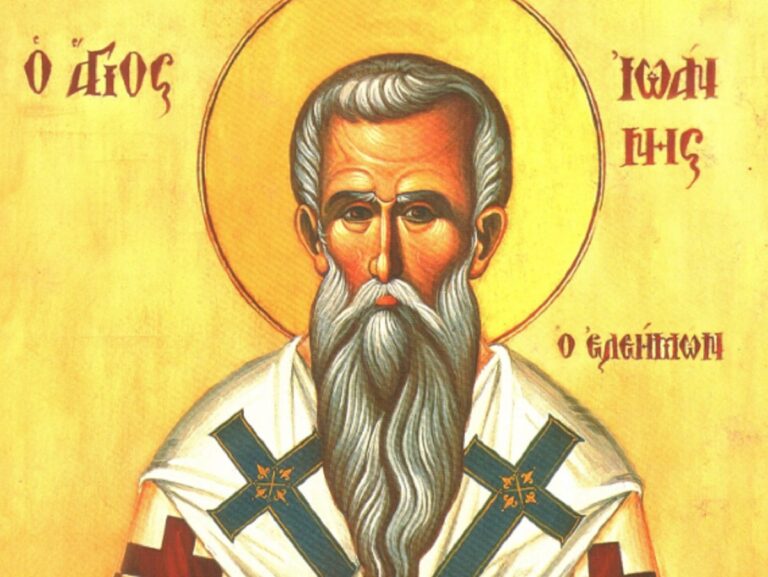After this great loss, John dedicated himself fully to a life of prayer, fasting, and charitable works. His reputation for holiness and compassion spread far and wide, and he was eventually chosen to serve as the Patriarch of Alexandria.
As Patriarch, John continued his life of humility and service to others. He was known for his tireless efforts to care for the poor and needy, and he never turned away anyone in need. He gave generously from the church treasury to ransom captives, help the sick, and support those in distress.
John’s kindness and compassion were evident in all his actions. He forgave those who wronged him, showed mercy to those in need, and always put the needs of others before his own. His life was a shining example of true Christian virtue and love.
Even in death, John’s humility and simplicity were evident. He had a coffin prepared for himself, but left it unfinished, reminding himself and others of the transient nature of earthly life.
Saint John the Merciful’s life is a testament to the power of love, compassion, and selflessness. May we all strive to follow his example and show kindness and mercy to all those we encounter.
Renowned for his compassion and piety, John was chosen as Patriarch of Alexandria in the time of Emperor Heraclius. He governed the Church of Alexandria for ten years as a true shepherd, safeguarding it from pagans and heretics. He was a model of meekness, charity, and love for his fellow men. He said: “If you desire nobility, seek it not in blood but in virtues, for this is true nobility.” All the saints have been distinguished by mercifulness, but St. John was completely dedicated to this wonderful virtue. Once, while celebrating the Liturgy, the patriarch remembered the words of Christ, Therefore if thou bring thy gift to the altar, and there rememberest that thy brother hath aught against thee, leave there thy gift before the altar, and go thy way; first be reconciled to thy brother, and then come and offer thy gift (Matthew 5:23-24), and he remembered that one of the clergy in that church had a grievance against him. He quickly left the Holy Gifts, approached that priest, fell before his feet, and begged for forgiveness. And only when he had made peace with this man did he return to the table of oblation. Another time, as he was on his way to the Church of Saints Cyrus and John, it happened that he met a needy and unfortunate widow who spoke to him at length about her misfortune. The patriarch’s escorts became bored by the woman’s lengthy complaint, and urged the bishop to hurry to the church for the service, intimating that he could hear the woman’s story afterward. John said to them: “And how will God listen to me if I do not listen to her?” He would not leave until he heard the widow’s complaint to the end.
When the Persians attacked Egypt, Patriarch John boarded a boat to escape from danger. Along the way, he fell ill and, when he arrived in Cyprus, he reposed at his birthplace, in the year 620 A.D. After he entered the Immortal Kingdom of his Lord, his miracle-working relics were translated to Constantinople, then to Budapest, and finally to Presburg.

